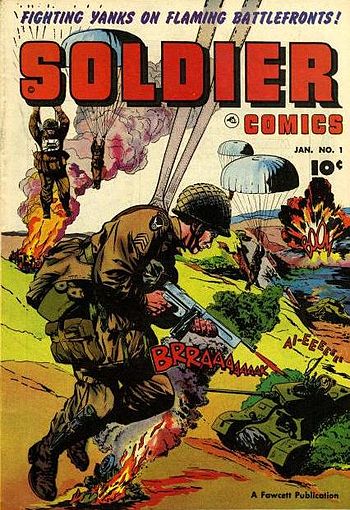 |
| Cover of Wonderworld Comics #3 (1939), published by Fox Feature Syndicate Photo: Wikimedia |
From time to time a change, in one or more comic book hero's powers, occurs. There can be a multitude of reasons behind this. Has the comic book hero become stagnant? Has the readership declined over the past several months? Did a metamorphosis happen while fighting? Did a depletion of their power make room for the change? And, of course, the ever-popular experimentation.
A mad scientist creates an experiment, an ordinary individual gets in the way, and his or her DNA is altered. He or she is then morphed into a superhero or a criminal based upon their disposition. Another version of that is a comic book superhero or villain get in the way of an unsolicited experiment that went awry.
Their molecular structure is mutated, which begs some questions. Does an ordinary citizen receive powers? Do the superheroes or villain's powers stay the same? Do they exhibit the same powers, only augmented? Do their powers change until it is unrecognizable from the original? Is the change a temporary one, or is it a long-term modification? Will their powers ever go back to normal? These issues are explored and examined, sometimes in minute detail.
The details that go into explaining the ever-changing powers of comic book heroes are appealing. In the framework of comic books, where fantasy merges with the imagination, the predicaments in which precipitates the change of the powers suggest that the storyline was born, bred and raised for some time.
Superman's powers changed him into two separated beings. One being was red and the other being blue. Each one was a separate hero who displayed different characteristics. They eventually combined and recreated the Superman we are familiar with and love. The account took one year. The semantics of the change suggested superman needed revamping.
The mighty Thor has seen his share of transformations. He possessed the Odin power for a while. Thor has his share of problems and will continue to so because the readership can relate to his problems or vices. With Superman's changes, the reader is confronted with Superman's problems and can debate the best way to handle them.
Many more comic book heroes have had their power altered in some way. It seems to be a staple in the comic book world. Amending a superhero is necessary for that type of environment. Introducing nemesis's and other comic book heroes perpetuates the genre. Moreover, if there were no further introduction of contrasting characters, the storylines would fizzle up and new ideas could not germinate. It is therefore sometimes essential to introduce old comic book characters with a twist. They can come back from the dead, or believed to be dead, and emerge to take on a criminal. It has to make some semblance of the discerning comic book reader. If the hero returns under circumstances that would seem suspect, the public response would be swift and ruthless. People expect some sense in the comic book world.
The ever-changing power of comic book heroes advocates a winning attitude for the comic book reader and the people who create them. When the two parties are in unison both sides win and the reader is left with a palpable appetite for more.


